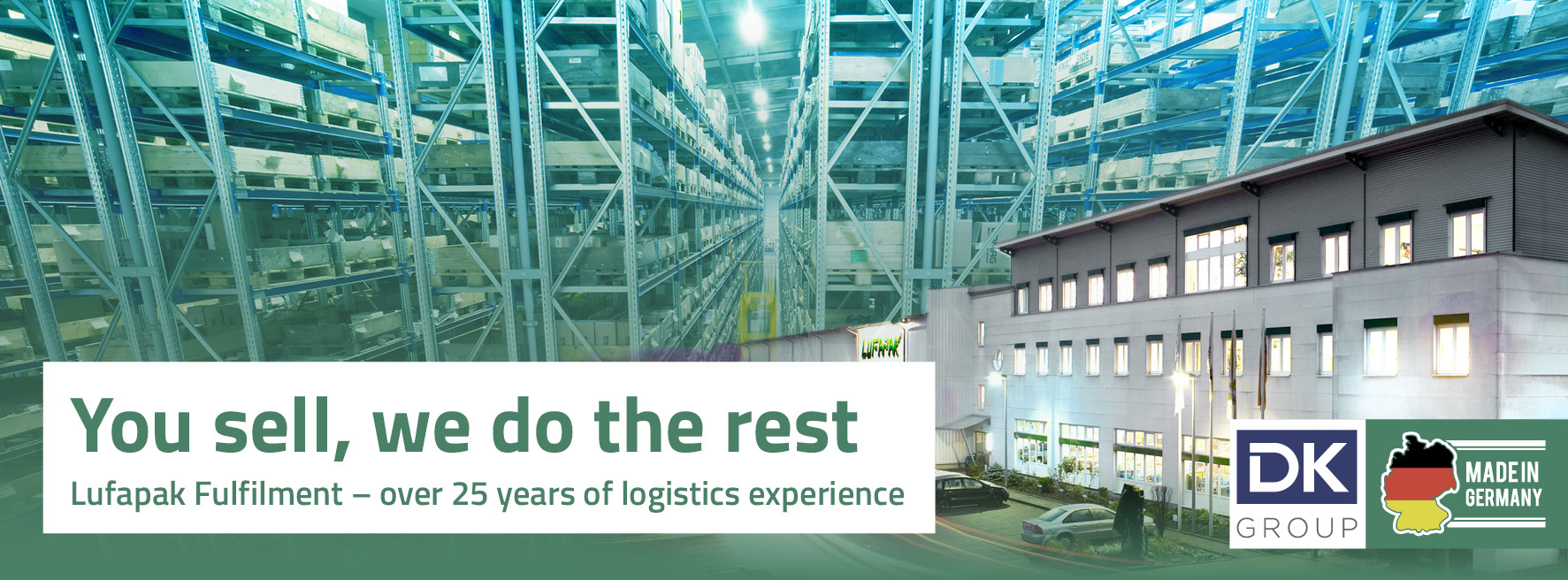sales@lufapak.de +49 2631/384-0 Contactform
Contract logistics is a term that refers to the outsourcing-based cooperation of a company’s logistics department with an external service provider. The main goal of this collaboration is to achieve more effective and efficient supply chain processes and business operations. Contract logistics is common in many industries today, especially in the automotive, retail, pharmaceutical, food and consumer goods industries. It is typically focused on a specific portfolio of tasks, ranging from warehousing and transportation of goods to inventory management, supply chain planning and product tracking. Contract logistics is a great solution for companies that need efficient and professional logistics services but don’t have the resources, staff or expertise to handle them in-house – a trusted partner can help execute implied promises.
Contract logistics examples
Contract logistics refers to taking over and performing logistics services for a company on a contractual basis. Here are some contract logistics examples to give you a better insight into this business area:
Warehousing and distribution for a retailer: A large retail company contracts a logistics company to store its products and distribute them to its stores. The logistics company organizes the flow of goods, handles receiving, picking, packing and shipping of the products.
Complete supply chain for a manufacturer: A manufacturing company contracts a logistics company to manage its entire supply chain. This includes sourcing raw materials, transporting them to production facilities, storing finished products, and finally transporting them to customers or distributors.
Returns management for an online retailer: An online fashion retailer hires a logistics company to manage its returns. The logistics company organizes the return transport, the inspection of the returned items, their re-storage or disposal.

Cross-docking for a grocer: A grocer commissions a logistics company to cross-dock its products. The logistics company receives the goods from the supplier, sorts them and delivers them directly to the retailer’s supermarkets without the need for long-term storage.
Customs clearance for an importer: An importer contracts a logistics company to handle the customs clearance of its imported goods. The logistics company takes care of the necessary customs documents, payment of duties and taxes, and ensures that the goods are declared correctly.
These examples show how diverse the tasks in contract logistics can be and how they help to improve the efficiency and performance of companies’ supply chains.
Industrial contract logistics in the automotive industry
The automotive industry is one of the most important industries in our country. An important factor contributing to the success of this industry is industrial contract logistics. Without these logistics services, many companies would not be able to ensure smooth production or delivery. In the automotive industry, manufacturers are often faced with the challenge of delivering their products at the right time, in the right quantities, as well as in the right quality. Industrial contract logistics in the automotive industry ensures that the supply chain functions efficiently and flawlessly. Companies can thus ensure that their products are delivered on time, which contributes to customer satisfaction. For this reason, contract logistics has taken a significant place in the automotive industry.
Possible contract logistics solutions
Contact logistics solutions can include warehousing, transportation, packaging, inventory management and other value-added services. The service provider works closely with the customer to offer customized solutions that are tailored to the customer’s specific needs.
Here are some solutions offered in the area of contract logistics
1. warehousing and distribution: a contract logistics provider can handle all warehousing and distribution for a company, including managing inventory and performing pick-and-pack services.
2. transportation management: this can include both domestic and international transportation of goods, including planning and executing shipments and monitoring deliveries.
3. inventory management: a contract logistics provider can also take responsibility for inventory management, including forecasting inventory needs, planning replenishment, and minimizing inventory costs.
4. packaging and repackaging: many contract logistics providers also offer packaging and repackaging services, including designing and manufacturing packaging and performing repackaging activities.
5. value-added services: These can be a variety of services beyond traditional logistics services, such as quality control, labeling, pricing, or assembly services.
The advantages of using contract logistics solutions are the possibility to reduce costs and increase efficiency while a specialized service provider takes over the logistics tasks.
Contract logistics company & contract logistics service provider Lufapak
As an experienced contract logistics company, our goal is to provide you with customized logistics solutions so that you can fully concentrate on your core business. Our comprehensive services as a contract logistics service provider include everything from warehousing, picking and distribution to planning and optimizing logistics processes. We place particular emphasis on working closely with our customers to best meet their specific requirements and needs. At Lufapak, we see ourselves as a partner to our customers and do everything we can to make your logistics chain as efficient and smooth as possible.
Contact us today!
Contact us now and get advice


